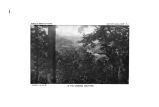| OCR Text |
Show 154 MYTHS OF THE CHEROKEE [ ETH. ANN. 19 entitled to the same, or by such other method as may be agreed upon . . . to enable the ultimate creation of a state or states of the Union, which shall embrace the land within the said Indian territory."! The commission appointed arrived in the Indian territory in January, 1894, and at once began negotiations. 2 At this time the noncitizen element in Indian Territory was officially reported to number at least 200,000 souls, while those having rights as citizens of the five civilized tribes, including full- blood and mixed-blood Indians, adopted whites, and negroes, numbered but 70.500.8 Not all of the noncitizens were intruders, many being there by permission of the Indian governments or on official or other legitimate business, but the great body of them were illegal squatters or unrecognized claimants to Indian rights, against whose presence the Indians themselves had never ceased to protest. A test case brought this year in the Cherokee Nation was decided by the Interior Department against the claimants and in favor of the Cherokee. Commenting upon threats made in consequence by the rejected claimants, the agent for the five tribes remarks: fc6It is not probable that Congress will establish a court to nullify and vacate a formal decision of the Interior Department. ', 4 A year later he says of these intruders that a s o long as they have a foothold- a residence, legal or not- in the Indian country they will be disturbers of peace and promoters of discord, and while they cry aloud, and spare not, for allotment and statehood, they are but stumbling blocks and obstacles to that mutual good will and fraternal feeling which must be cultivated and secured before allotment is practicable and statehood desirable." 6 The removal of the intruders was still delayed, and in 1896 the decision of citizenship claims was taken from the Indian government and relegated to the Dawes Commission. 6 In 1895 the commission was increased to five members, with enlarged powers. In the meantime a survey of Indian Territory had been ordered and begun. In September the agent wrote: " The Indians now know that a survey of their lands is being made, and whether with or without their consent, the survey is going on. The meaning of such survey is too plain to be disregarded, and it is justly considered as the initial step, solemn and authoritative, toward the overthrow of their present communal holdings. At this writing surveying corps are at work in the Creek, Choctaw, and Chickasaw Nations, and therefore eath one of these tribes has an ocular demonstration of the actual intent and ultimate purpose of the government of the United States." 7 1 Quotation from act, etc., Report of Indian Commissioner for 1894, p. 27, 1895. 2 Report of Agent D. M. Wisdom, ibid., p. 141. 3 Ibid., and statistical table, p. 570. • » Report of Agent D. M. Wisdom, ibid., p. 145. r< Agent D. M. Wisdom, in Report Indian Commissioner for 1895, p. 155, 18%. 6Commissioner D. M. Browning. Report of Indian Commissioner, p. 81, 1896. * Report of Agent D. M. Wisdom. Report of Indian Commissioner for 1895. pp. 159,160,1896. |































































































































































































































































































































































































































